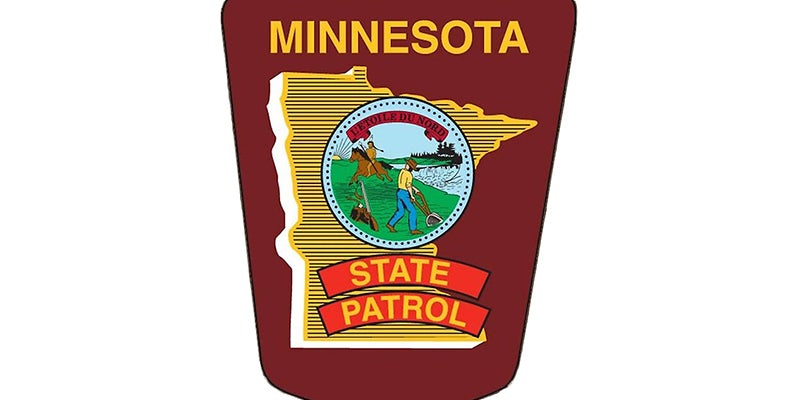50 states, 50 heroes: Against all odds
Published 7:01 am Saturday, April 11, 2020
|
Getting your Trinity Audio player ready...
|
Born July 27, 1929, in Burlington, Iowa, Jimmie Earl Howard attended the University of Iowa for one year before enlisting in the Marine Corps in 1950. After basic and advanced individual training, Howard went to Korea in 1952, where he distinguished himself while serving as a forward observer for the 4.2” Mortar Company of First Marines Regiment, First Marine Division. While in Korea, he was awarded the Silver Star and two Purple Hearts.
In 1966, with the conflict in Vietnam escalating, Staff Sgt. Howard was deployed to the American base camp in Chu Lai as a platoon sergeant in Company C of the First Reconnaissance Battalion, First Marine Division. North Vietnamese forces controlled the area west of the base camp; in June, intelligence reports of enemy movement in the area prompted American commanders to get a closer look.
On June 13, 1966, Howard and a force consisting of 15 Marines and two Navy Corpsmen under his command were flown by helicopter to a high ground position dubbed Hill 488. Their mission was to observe enemy movement in the valley below and call in air and artillery strikes. They carried out the mission with full effect, disrupting the enemy movement.
On June 15, the battalion commander offered to pull Howard and his men out, but Howard said he believed he could hold out for one more day. Unbeknownst to him, the North Vietnamese realized where the Americans were directing their fire. By the time word reached Chu Lai that 250 veteran North Vietnamese soldiers were heading for Hill 488, it was too late to withdraw Howard’s men.
Howard placed his men at strategic locations around the hill with the order to pull back to a perimeter once the enemy was engaged. At about 10 p.m., first contact was made with the North Vietnamese, prompting the Marines to pull back to form a 20-yard circle. As the North Vietnamese attacked, Howard went around the perimeter to encourage his men and strengthen any weak positions. Despite every defender being wounded in the attack, as well as a few killed, the Marines held on and forced the enemy to fallback.
But the fight was far from over. Howard called back to Chu Lai for an extraction, but it was clear that any rescue would have to wait until morning. At the base of the hill, North Vietnamese soldiers began yelling, “Marines, you die in an hour!” With his permission, Howard’s men then returned the taunts, which were met by gunfire. Despite this, the Marines laughed, a reaction that caught the North Vietnamese off guard. Howard later recalled, “I think it had a chilling effect on them. They must have known we were terribly outnumbered, but here we were laughing at them.”
Despite the Marines morale being up, the situation was dire. All of the their grenades had been used to repel the first attack and ammunition was low. It was then that Howard gave the order to throw rocks. Despite the unorthodox nature of the order, it proved effective; enemy soldiers hiding in the deep grass attempting to probe the perimeter mistook the rocks for grenades, causing them to panic, flee into the open, and give the defenders a clear shot.
Throughout the night, the North Vietnamese alternated between probing the defenses and launching full scale attacks. Howard continued to encourage his men, direct fire and call in air support, including one strafing attack 30 feet from his position. When Howard’s radio went dead, Chu Lai base camp assumed the worst.
Howard was shot in the back and unable to move his legs, but continued to crawl along the perimeter and encourage his men.
The next morning, Hill 488 was still under attack. A helicopter sent in to evacuate the defenders was shot down, killing the pilot. Because it was too dangerous to evacuate the defenders by air, a company of Marines trekked out to Hill 488, reaching the perimeter at noon. During the intense 14-hour long fight, the defenders had held.
Five of Howard’s men were killed during the battle and a sixth died en route to the base camp. The North Vietnamese, however, lost about 200 soldiers. Only eight rounds of ammunition remained among the 12 survivors.
On Aug. 21, 1967, President Lyndon Johnson awarded Howard the Medal of Honor during a ceremony at the White House. In attendance were the other surviving 11 men at Hill 488, whom Howard individually introduced to the president after the ceremony.
Along with Howard’s Medal of Honor, the men of Hill 488 received four Navy Crosses, 13 Silver Stars and 18 Purple Hearts.
Howard retired from the Marine Corps on March 31, 1977, with the rank of First Sergeant. He lived in San Diego, where he worked for the local Veteran’s Affairs office and coached football at Point Loma High School. Howard died on Nov. 12, 1993, at the age of 64. He is buried in Fort Rosecrans National Cemetery in San Diego.
On Nov. 20, 1999, Howard’s widow, Theresa Howard, christened the USS Howard, an Arleigh Burke-class guided-missile destroyer named in his honor.




